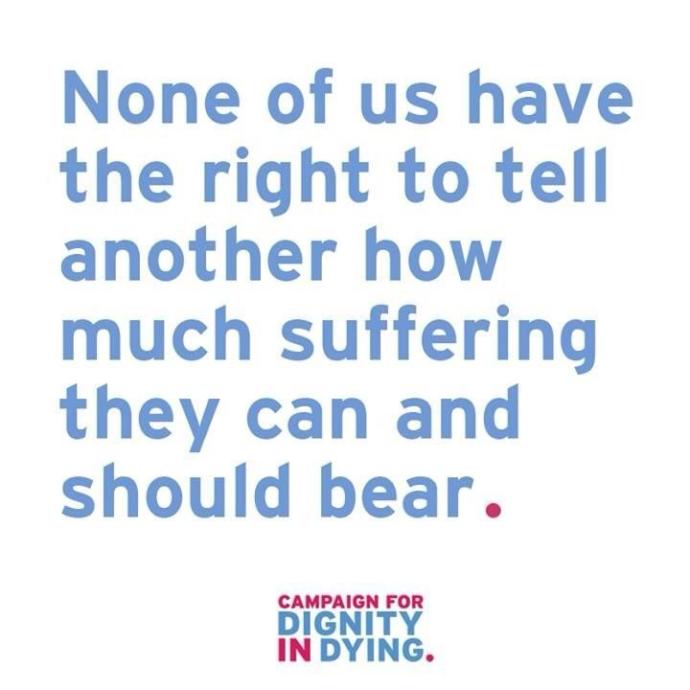
Those of us in the healthcare have all seen horrible, awful things that scar us and we have difficulty talking about these things. My first code was a 97 year old woman who was massively bleeding out of her head. She was fully conscious when this happened and she was absolutely wailing in pain as I held a wash cloth to her head and tried to calm her down. The facility where this happened was so understaffed it was just me and one (yes one) nurse running this code. I had just turned 20 when this happened and she fortunately survived. I had nightmares about that night for months that were so bad, I went to a therapist. I don't have nightmares anymore but I think about that night all the time. Everyone who works in healthcare has had moments like these and they quickly mature you.

Now its quite morbid to think about but not a lot of people talk about their wishes when they begin to die. So imagine this. You are in a horrific car accident. Paramedics respond and begin chest compressions. Mind you, chest compressions must 2 inches deep into the chest. For a lot of people, that will break their ribs. Broken ribs is painful and awful. Its difficult to even breath but suffering from a serious case of the deadness is worse.

By the time you get to the hospital, there's no pulse and very little signs of life. Because of modern science, we can mechanically pump your heart and lungs. But you've never talked about your wishes. Too many people would rather avoid the subject because it's morbid. You're family is truly in shock and doesn't know to think. But there is no time to sit down and think about this. At least not now there isn't.
At this time, the medical staff takes matter in their own hands. A nurse or someone the nurse designates, calls a "code blue." And all hell breaks loose. Every nurse, doctor, anesthesiologist, nursing student, the code blue team, respiratory therapist, and med students are now at your bedside. At this time, we confirm you have no pulse and ask if anyone objects to beginning the code blue. Every code blue has a leader usually an experienced doctor or nurse, they grab a terrified student and tell them to begin compressions. Because that's how you learn by being thrown into the dark end as they critique your compressions. And they tell just about everyone else to get in line for compressions when they can't go on.

All the while, you still aren't breathing so you are intubated with basically, a metal crowbar. Now, people who aren't forcing your airway to open or doing chest compressions, still have a task and you need drugs in you ASAP. If we can't get an IV access in the arm, we don't time to find another vein in the arm. We'll try the groin instead. A resident or intern will be poking around with a needle several inches big in your groin. Blood will be going everywhere because they may miss and hit your artery in their rush to find access. Now of course, the cracking ribs is still going on, air is still being squeezed in your chest, and you're being pumped full of drugs. Hopefully you have been given something to sedate you because people have been awake while they have received CPR. That's not guaranteed because the little amount of blood rushing back to your brain may be making you peripherally aware.
Unfortunately the statistics for CPR survival are not great. Every year, approximately 400,000 people in the United States suffer an out of hospital cardiac arrest. Of these, typically less than 10% survive. And in the hospital, only 18% of those who receive CPR are well enough to leave the hospital. And almost 1 in every 3 people admitted to the hospital will die there. If you wake up, you will wake up in a clinical setting with a person you've never met staring back at you. You don't know what happened and you can't speak because of the steel crowbar in your throat.

And working in healthcare, this is something that infuriates me. CPR doesn't work a majority of the time and yet people would rather that the ribs of their 97 year old grandmother, with paragraphs of medical problems, be cracked and broken in a vein attempt to save her. Its always a subject to avoid until the time is too late. Pick someone who won't be blinded by emotion when your time comes. Personally, I'd rather the medical professionals fight for me until my older sister, (who is a care flight paramedic and med student) says no more. She works in healthcare like me and is the only person I know won't be blinded by emotion because sees things like this all the time and she knows when the odds are no longer in our favor.
 Holidays
Holidays  Girl's Behavior
Girl's Behavior  Guy's Behavior
Guy's Behavior  Flirting
Flirting  Dating
Dating  Relationships
Relationships  Fashion & Beauty
Fashion & Beauty  Health & Fitness
Health & Fitness  Marriage & Weddings
Marriage & Weddings  Shopping & Gifts
Shopping & Gifts  Technology & Internet
Technology & Internet  Break Up & Divorce
Break Up & Divorce  Education & Career
Education & Career  Entertainment & Arts
Entertainment & Arts  Family & Friends
Family & Friends  Food & Beverage
Food & Beverage  Hobbies & Leisure
Hobbies & Leisure  Other
Other  Religion & Spirituality
Religion & Spirituality  Society & Politics
Society & Politics  Sports
Sports  Travel
Travel  Trending & News
Trending & News
Most Helpful Opinions